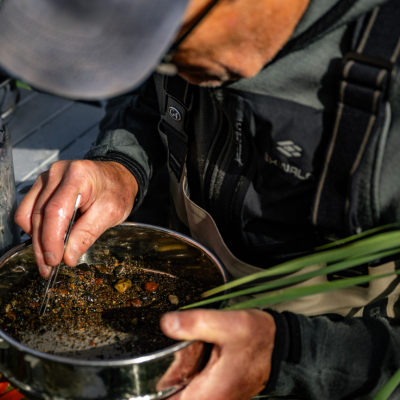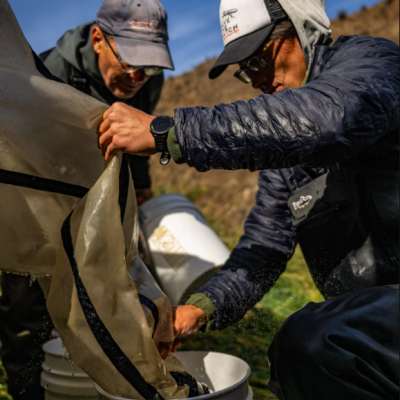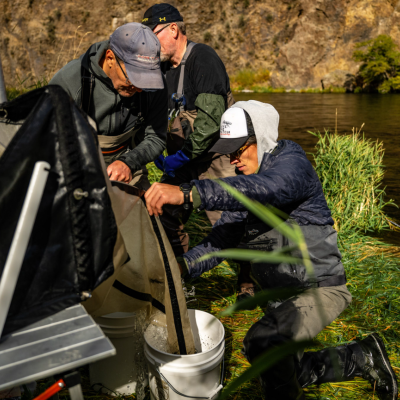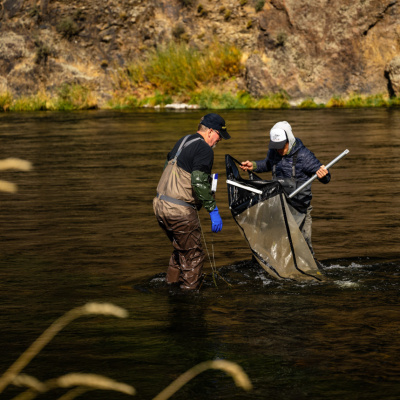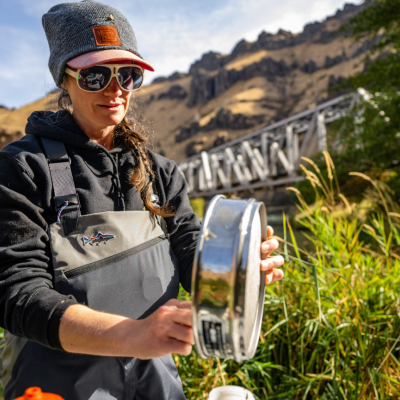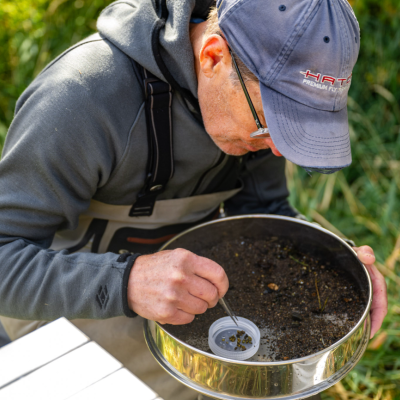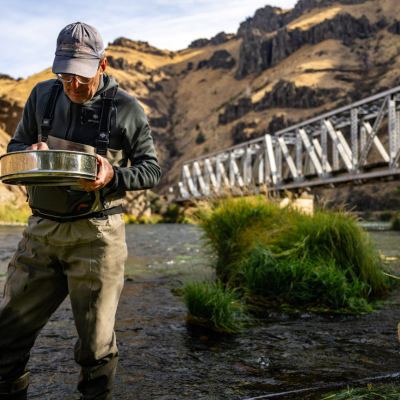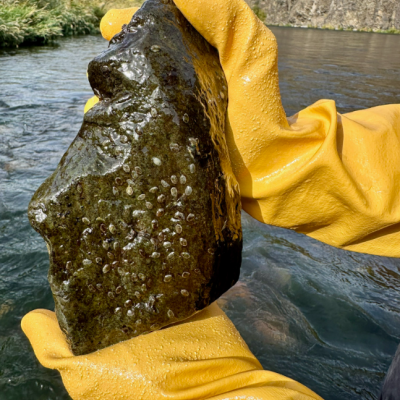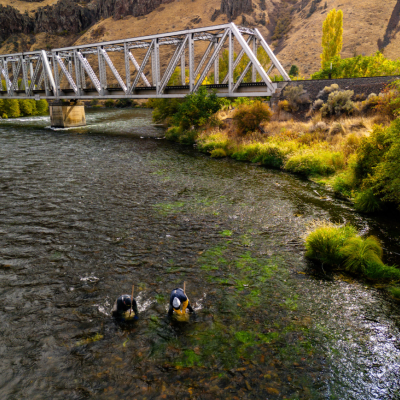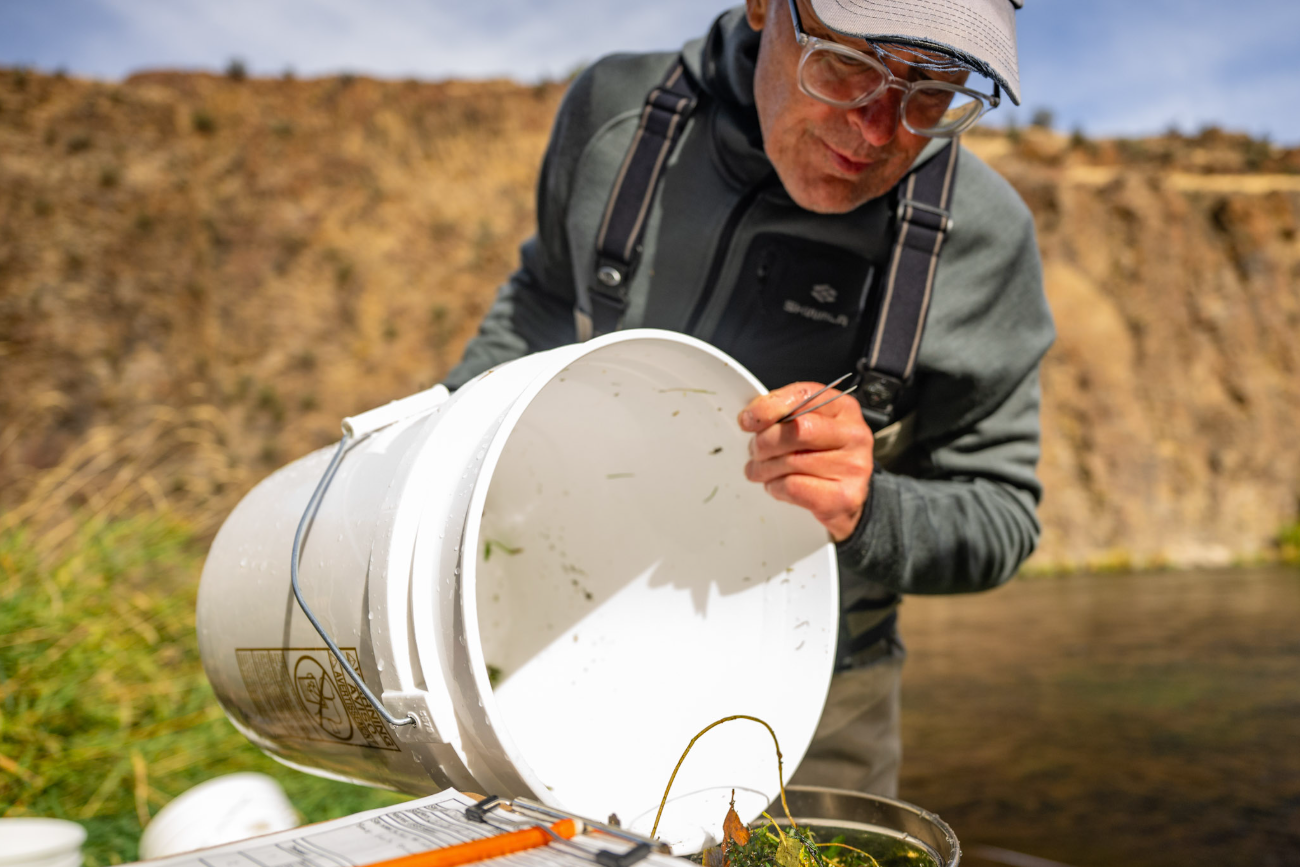Bugging Out on the Lower Deschutes
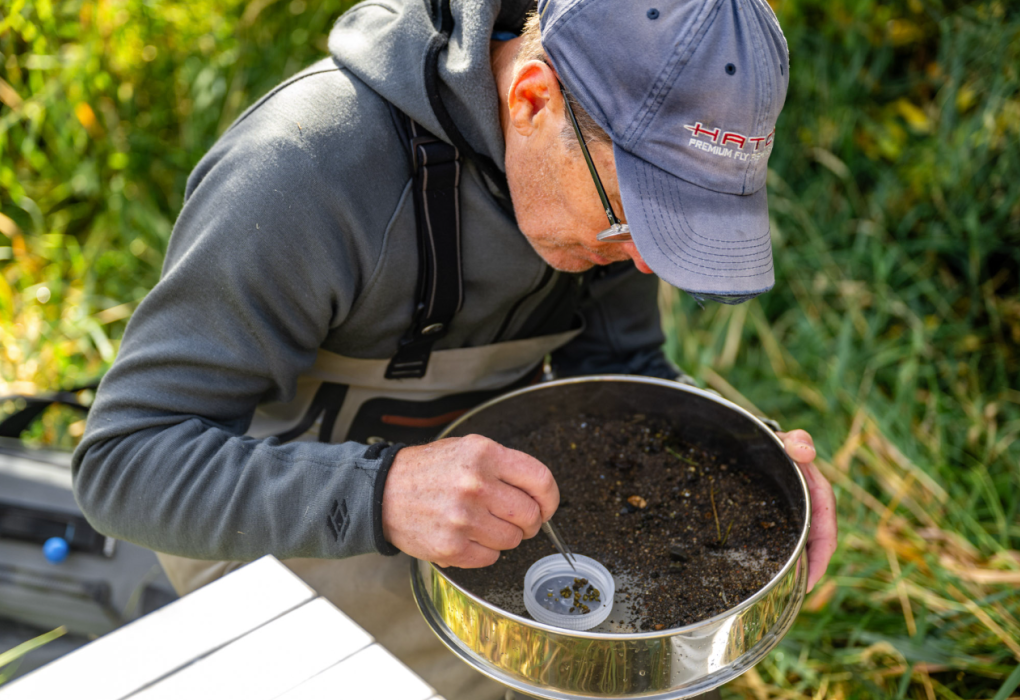 NFS Supporter and Volunteer John Pirolo conducting insect sampling for the Salmonfly Project on the lower Deschutes River | Photo: Arian Stevens
NFS Supporter and Volunteer John Pirolo conducting insect sampling for the Salmonfly Project on the lower Deschutes River | Photo: Arian Stevens
This fall, Native Fish Society partnered with The Salmonfly Project for a 10-day field campaign on the lower Deschutes River, gathering critical data on aquatic insect populations. The study revisits sites sampled in 1999 and 2013, aiming to track changes in insect communities and evaluate sampling methods for large western rivers. Below is a firsthand writeup from Dr. Liz Perkin, Northern Oregon Coordinator at Native Fish Society, sharing her experiences, expressing gratitude to our volunteers and donors, and outlining what’s next for this important project.
~~~~~~~~~~~~~~~~
Driving down the Deschutes River canyon between Maupin and Macks Canyon early one morning in mid-October, I kept nervously glancing over to the river. Not to scout promising steelhead runs empty of other anglers, but to spot potential riffles for sampling aquatic insects.
I was driving down to Macks to meet up with Dr. Jackson Birrell and Brian Currier of The Salmonfly Project. It was the first day of a 10-day sampling campaign in the lower Deschutes, and I was nervous that we were going to have an incredibly hard time finding riffles shallow enough to sample, but deep and long enough that samples we would collect there would accurately represent the aquatic insect community of the river. Fortunately, we found a really nice long riffle right at the end of Macks and quickly got to work.
Native Fish Society previously shared an Instagram post in our weekly newsletter that described some of the goals of this specific project. Namely to:
Follow up on previous insect sampling done at many of the same sites back in 1999 and 2013 to see if any further changes in the insect community have taken place;
To test out three different sampling methods to determine which is the best for tracking insect abundance, not just in the Deschutes, but in all the large western rivers the Salmonfly Project monitors.
Over the course of eleven days of sampling on the lower river, a total of nine volunteers helped out. Every volunteer was excited to take part in the project and reported that they learned a tremendous amount while helping track aquatic insects.
"The time that I spent with Jackson Birell (co-founder of the Salmonfly Project), Brian Currier, (a field tech for the Salmonfly Project), Lauren Hoff (an NFS volunteer) and Liz Perkin was truly one of the highlights of this season on the water. Seeing the field work first-hand, gaining an understanding of the diversity and complexity of a remarkable invertebrate ecosystem living on and beneath riverbeds that I’ve often passed over, and recognizing the way in which that ecosystem is a fundamental indicator of river health, was remarkable. However, I think that perhaps the most enjoyable part, was simply witnessing the passion and joy that the Salmonfly Project and NFS team brought to the work, and really understanding the depth of their commitment to preserving the incredible resource the Deschutes represents. I really feel fortunate to have been able to share time with them and can’t express enough how much I appreciate their work."
-John Pirolo, NFS Supporter, Donor, and Volunteer
Over the next year, Native Fish Society will be working closely with the Salmonfly Project to analyze this year’s samples and write up our findings. We plan on writing a summary of our work for a general audience that we hope to publish in a fly fishing focused magazine, as well as a peer-reviewed scientific paper that other scientists can use to help determine what sampling method is best for their own invertebrate studies on large rivers. Additionally, we’re in talks with the Deschutes River Alliance to combine sampling efforts in the coming years.
We are extremely grateful to the donors who supported this work. Within two weeks of proposing the project, generous donors fully funded the work. If you’d like to support NFS’ ongoing work with the Salmonfly Project, please contact Tracy, Tom, or Liz for more information.
~~~~~~~~~~~~~~~~
This collaborative effort is just the beginning of an ongoing commitment to understanding and restoring the Deschutes River’s ecological health. With your continued support, we can expand this important work and help secure a thriving future for the river’s wild fish and insect populations. Stay tuned for updates on our findings and ways you can get involved in the next phase of the Salmonfly Project!
Check out some photos of Salmonfly Project insect sampling on the lower Deschutes this fall:
Photos: Arian Stevens
